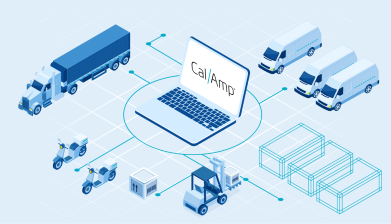
The Ultimate Guide to Fleet Management Tools: Your Complete Resource.
In the dynamic world of fleet management, staying ahead requires the right tools and strategies. From tracking vehicles to optimizing routes and managing maintenance, fleet management tools play a crucial role in streamlining operations, improving efficiency, and driving success. Whether you're a seasoned fleet manager or just starting out, this comprehensive guide has everything you need to know about fleet management tools, from their types and features to their benefits and best practices.
Understanding Fleet Management Tools .
Fleet management tools encompass a wide range of software solutions and technologies designed to streamline various aspects of fleet operations. These tools include GPS tracking systems, telematics software, route optimization platforms, maintenance management systems, and compliance software, among others. By leveraging these tools, fleet managers can gain real-time visibility into their operations, optimize resources, and make data-driven decisions to improve efficiency and reduce costs.
Types of Fleet Management Tools
Fleet management tools can be categorized into several main types based on their functionality and purpose:
GPS Tracking Systems: These tools use GPS technology to track the location and movement of vehicles in real-time, allowing fleet managers to monitor vehicle routes, speeds, and idle times.
Telematics Software: Telematics systems collect and analyze data from vehicle sensors to provide insights into driver behavior, vehicle performance, and fuel consumption.
Route Optimization Platforms: Route optimization tools help fleet managers plan and optimize vehicle routes to minimize fuel consumption, reduce travel time, and improve overall efficiency.
Maintenance Management Systems: Maintenance management software helps track vehicle maintenance schedules, automate maintenance tasks, and ensure vehicles are properly serviced and inspected.
Compliance Software: Compliance tools help ensure fleet operations comply with industry regulations, safety standards, and environmental requirements, reducing the risk of penalties and legal liabilities.
Key Features of Fleet Tools:
Real-Time Tracking: The ability to track vehicles in real-time allows businesses to monitor their fleet's location, speed, and status at any given moment, enabling better decision-making and response to unexpected events.
Automated Alerts: Automated alerts notify fleet managers of critical events such as maintenance reminders, vehicle breakdowns, or unauthorized use, allowing for prompt action to address issues and minimize disruptions.
Data Analytics: Data analytics tools provide valuable insights into fleet performance, fuel efficiency, driver behavior, and more. By analyzing this data, businesses can identify trends, uncover inefficiencies, and make informed decisions to optimize their operations.
Integration Capabilities: Fleet tools that offer integration with other business systems, such as accounting software, ERP systems, or fuel card programs, can streamline data management and improve workflow efficiency.
Benefits of Fleet Tools:
Improved Efficiency: By automating manual tasks, optimizing routes, and providing real-time visibility into fleet operations, fleet tools help businesses improve efficiency and productivity.
Cost Savings: Fleet tools can help businesses reduce fuel consumption, minimize vehicle downtime, and lower maintenance costs, resulting in significant cost savings over time.
Enhanced Safety: By monitoring driver behavior, enforcing compliance with safety regulations, and providing actionable insights to improve driver performance, fleet tools contribute to a safer work environment and reduce the risk of accidents.
Better Customer Service: By optimizing routes, improving delivery times, and providing accurate ETAs, fleet tools help businesses deliver exceptional customer service and enhance customer satisfaction.
Conclusion:
Fleet tools play a crucial role in modern fleet management, enabling businesses to optimize their operations, reduce costs, and improve safety and customer service. Whether it's GPS tracking systems, route optimization software, or telematics solutions, investing in the right fleet tools can help businesses stay competitive in today's fast-paced business environment. By understanding the different types of fleet tools, their key features, and the benefits they offer, businesses can make informed decisions and harness the power of technology to drive success in their fleet operations.
2023
© All rights reserved by
quebeta


